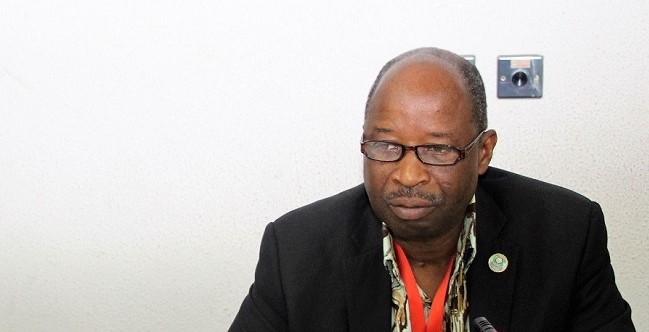The Economic Community of West African States (ECOWAS) commenced a four-day training in Abuja on Tuesday, December 8, 2020 to train Nigerians on how to develop projects to make Nigeria benefit from the Green Climate Funds (GCF).

The GCF was created to support efforts of developing countries to respond to the challenges of climate change.
The training was organised by ECOWAS in collaboration with the Swedish Cooperation and the Federal Ministry of Environment.
Dr Johnson Boanuh, Director, Environment and Natural Resources of the ECOWAS Commission, told the training participants that the training was meant to support the efforts of benefiting countries to access the fund.
Boanuh said that the adoption of the Paris Climate Agreement in 2015 had marked a turning point in the process of combating climate change.
“To date, all ECOWAS countries have ratified the agreement, resulting in the implementation of their Nationally Determined Contributions (NDCs), which have become one of the major challenges for each of the signatory countries.’’
According to him, mobilisation of financial resources is one of the key solutions for ECOWAS member countries to overcome the challenges.
He noted that in spite of the existence of several funds, difficulties in accessing the funds remained a crucial challenge for ECOWAS member countries.
“In order to assist countries to overcome these challenges, the ECOWAS Commission has since 2015, initiated several capacity building programmes for designated national authorities.
“Since 2018, a new approach has been initiated and conducted that links the training of experts at the national level on the formulation of projects to meet the criteria of the GCF and the adaptation fund.
“Today’s workshop marks another step in a series of trainings for the 15 ECOWAS countries, in order to allow each of them to have a pool of experts, who can support the designated national authority.
“We are hopeful that the national experts, who will receive this training will be able to help boost the efforts already made by Nigeria to access the resources of the GCF in particular,” Boanuh said.
Mrs Halima Bawa-Bwari, Acting Director, Department of Climate Change in the Federal Ministry of Environment, said that the training was timely because it would build capacities of participants in project formulation and development.
Bawa-Bwari, who was represented by Mrs Benedict Ejiofor, a staff of the ministry, said that it was expected that lessons learned would enhance participants’ abilities to develop projects from scratch to finish.
According to her, the lessons will enable Nigeria to execute more projects, funded by the GCF, adaptation funds and other global funds in the near future.
“In line with the implementation of Nigeria Nationally Determined Contributions (NDC) climate change has become a critical issue of our time and we are at a defining moment in its history.
“From changing weather patterns that threaten food security to rising sea levels that increase the risk of catastrophic flooding, the impact of climate change are now global in scope and unprecedented in scale.
“If drastic and decisive actions are not taken now, coping with these impacts in the future will be more difficult and costly,” Bawa-Bwari added.
A participant in the training, Ms Nkiruka Okonkwo, founder of the Fresh and Young Brains Development Initiative, said she hoped to learn new ways that Nigeria could develop projects that could align with the GCF, especially in the areas of mitigation and adaptation.
“I look forward to joining other experts and CSOs to develop two concrete projects that can help Nigeria to adapt to the impact of climate change and help mitigate the impacts,” Okonkwo said.
By Lizzy Okoji
